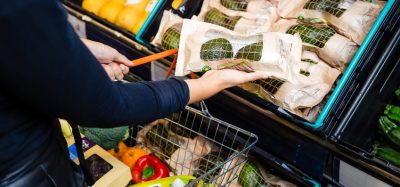Academics claim Europe’s approach to food and agriculture is unsustainable
- Like
- Digg
- Del
- Tumblr
- VKontakte
- Buffer
- Love This
- Odnoklassniki
- Meneame
- Blogger
- Amazon
- Yahoo Mail
- Gmail
- AOL
- Newsvine
- HackerNews
- Evernote
- MySpace
- Mail.ru
- Viadeo
- Line
- Comments
- Yummly
- SMS
- Viber
- Telegram
- Subscribe
- Skype
- Facebook Messenger
- Kakao
- LiveJournal
- Yammer
- Edgar
- Fintel
- Mix
- Instapaper
- Copy Link
Posted: 1 May 2018 | George Smith (New Food) | No comments yet
EU policy-makers need to implement a food systems approach to address negative impacts of climate change on food systems and encourage healthy, environmentally sustainable diets, say European national science academies.


CHANGE: The report heaps pressure on policy makers
At the launch of their report, Opportunities and Challenges for Research on Food and Nutrition Security and Agriculture in Europe, last week at the Palais des Académies in Brussels, European national science academies along with the InterAcademy Partnership urged European policy-makers to re-think their approach to food and agriculture.
Calling for a “food systems approach”, the national science academies said that the current siloed policy approach to food, agriculture, climate change, and health – both at the EU and Member State levels – is not the way forward, particularly if ambitious targets such as the Paris Agreement are going to be met.
An integrative food systems approach encompasses all the steps involved from growing through to processing, transporting, trading, purchasing and consuming food, and avoiding waste.
The national science academies across the EU, Norway, and Switzerland called for policy coherence – and a higher level of political ambition – to improve rapidly if Europe is to lead the way towards tackling nutrition, climate change, and decreasing food waste.
While agriculture – and particularly the Common Agricultural Policy – have a critical role to play, the authors note that policy-makers cannot rely solely on changes to agricultural production to address these pressing issues: consumer behaviour needs to change, too.
“A food systems approach is critical to tackling some of the most pressing issues of our day, such as climate change, sustainable land and water use, food waste, and of course human health. This calls for science initiatives that cut across disciplines, tailored to the complexity of food systems by both, EU and Member States”, said Professor Joachim von Braun, Co-Chair of the EASAC-IAP project on food and agriculture, and Director of the Center for Development Research (ZEF) and Professor of Economic and Technological Change at the University of Bonn.
“As malnutrition remains a huge global problem and in recent years global hunger has increased again, EU science policy on food, nutrition and agriculture needs to take an international view. Related innovations in Europe can have large positive impacts elsewhere in the world, if shared in science partnerships. Other themes of promising international collaborative science are food safety and healthy diets.”
“This report is part of a larger project involving 130 science academies around the globe. Europe’s approach to food, agriculture, and the environment is crucial because Europe’s actions affect others around the world”, added Professor Volker ter Meulen, President of The InterAcademy Partnership (IAP).
“The status quo in Europe on food and agriculture – which has huge implications for climate change and health – is not sustainable. We hope this project will help change the status quo on these issues, which will also contribute to mitigating the effects of climate change in Europe and around the world.”
Related topics
Food Safety, Food Security, Food Waste, Obesity, Sustainability, Trade & Economy









